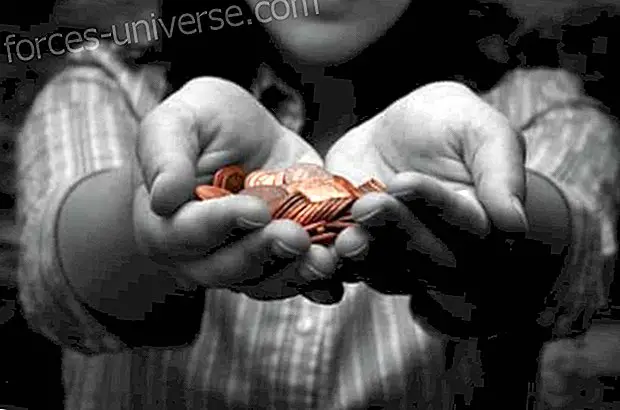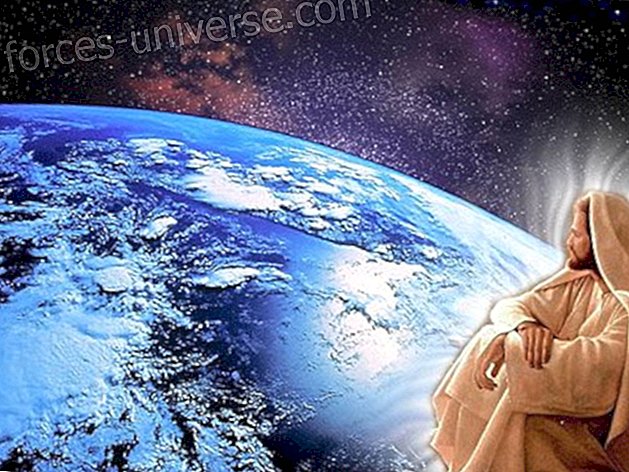Comparable with two great spiritual columns, the Christian feeling of the world has created the two holidays, Christmas and Easter, within the course of the year, considering both aspects as a symbol of the course of human life. It can be said that the image of the Christmas party and that of Easter is presented to the human soul as the two spiritual columns that tell us about the great mysteries of human physical existence, and that demand a very different contemplation from man from that of other events in his earthly life. It is true that in this life - through sensory observation, intellectual discernment, feeling and volitional act - the supersensitive speaks to us. But in other cases the suprasensible is spontaneously announced as such, as for example at the Feast of Pentecost, in which the Christian feeling wants to give a sensitive expression to the suprasensible. But through the images of Christmas and Easter, the two events of the course of physical life are pointed out, which according to their outward appearance are physical events and which, due to their peculiarity, in contrast to all other events, do not They really express as physical events. According to the natural conception with sight, the physical life of man, the external aspect of physical life, and the external revelation of the spiritual are also covered. But it is not possible to physically perceive, or retain its appearance, the outer revelation of the two experiences of the beginning and end of the course of human life, without the sensation of the deeply enigmatic, the mysterious, per the physical perception itself. of the two events to which I refer: birth and death. And in the life of Jesus Christ, as in the images of Christmas and Easter, they are faced with the Christian feeling, reminding them, those two events of physical life. Through the images of Christmas and Easter, the human soul looks at those two great mysteries; and by such observation she finds the luminous strengthening of thinking, and the powerful content of human will; and in any situation of life he finds the consolation of his whole being. The two spiritual columns, those of Christmas and Easter are of eternal value. I think it can be affirmed that our time of new spiritual revelations will also shed new light on the idea of Christmas, so that gradually the image of Christmas can be felt in a new way. It will be up to us to perceive, from universal events, the call to give a new character to old representations, the call to a new revelation of the Spirit. It will be our turn to understand that in the universal happening a new image of Christmas opens its way, for the strengthening and consolation of the human soul. The birth and death of man, the more they are observed and analyzed, are presented to us as events that take place entirely on the physical plane, and in which the spiritual prevails in such a way that from a serious observation, no one should deny that those two terrestrial occurrences of human life, are directly shown as physical facts, to the point that, being carried out in man, they show that he is a citizen of a spiritual world. No natural conception, within what the senses perceive and the intellect can comprehend, can ever find anything other than the one in which the work of the spiritual is spontaneously evidenced in the physical. Only these two events are presented in this way to the human spirit. And for the occurrence of birth that finds its expression at Christmas, the human-Christian spirit must feel more and more deeply the character of mystery. It can be said that men have rarely come to properly take into account the character of mystery regarding birth. And rarely by images that speak deeply to the human soul. Such an image is expressed in what is related to the fifteenth-century Swiss genius Nikolaus von der Fl e. He has said that before his birth, before he could breathe physical air, he perceived his own human image, which he was physically going to have after his birth. Before his birth he saw the act of his baptism with the people present in it, as well as the images of his first days. Then he recognized them, with the exception of an elderly person. Take this story as you wish, you will not be able to admit unless it is a significant indication of the mystery of human birth, whose symbol is presented to us before the Universal story through the image of Christmas. The story of Nikolaus von der Fl e tells us that with the entry into physical life, something related to everyday perception is related, it only hides behind It's a very thin partition. This thin septum can rupture when there is a thermal condition, as in this case. Other examples may be given, but it must be said that humanity is still very unaware that the two extremes of human life, birth and death, already appear by their only physical aspect as two spiritual events, which can never take place within the mere natural occurrence; on the contrary it is a work of divine-spiritual powers, which is expressed by the fact that precisely because of its physical aspect the two experiences in the principle and the end of human physical life They have to remain mysteries. The new Christian revelation leads us to consider the course of human life in such a way as, certainly, in the twentieth century, Christ expects humanity to take it into account. To contemplate the image of Christmas, let us remember words of Christ Jesus, according to the Gospel of Saint Luke, words that are conducive to relate them to the image of Christmas. I mean the words: `` Truly, I say to you, that whoever does not receive the kingdom of God as a child, will not enter into him. '' When the Christ says `` anyone who does not receive the kingdom of God as a child, '' it should not be understood as if one wanted to take away from the idea of Christmas all the character of a mystery, and instead speak simply of the dear child Jesus, -as and as has been done in the course of the materialist evolution of Christianity-. The words of Christ Jesus: Anyone who does not receive the kingdom of God as a child will not enter l make us look up at powerful impulses that can be They are revealed through the evolution of humanity. At present (after the war of 1914/18) there is certainly no reason to surrender to trivial thoughts about the meaning of Christmas, but the human heart lives with the sad image of millions of dead and of the great food shortage; At this time, the best thing to do is to surrender to the powerful thoughts of universal history that propel man and that can arise as a result of words: who does not receive the kingdom of God as a child Or, those that can be completed with these others: whoever does not illuminate his life with the light of such thought, will not be able to enter the celestial kingdoms. The man when entering this world as a child, comes directly from the spiritual world, because what then takes place in the physical world, the procreation and growth of the physical body, is nothing other than the external aspect of the event that consists in the deepest being of man leaves the spiritual world. Starting from his spiritual state, man enters the body at birth, and when the Rosicrucian says: ex deo nascimur, he refers to the human being in terms of his appearance in the physical world, because what at first involves man, he which makes it a physical entity here on the globe, this is what is expressed by the word ex deo nascimur. Considering the center of man, what really is the intimate central being, it must be said: starting from the spiritual, man enters this physical world. But what he has in the physical world, when he perceives it from the spiritual level before conception or birth, man becomes involved with the physical body, in order to experience in it, that which only in this physical body can be experienced . But we must bear in mind that with his central being man comes from the spiritual world. And for those who intend to contemplate things as they appear in the world, without being dazzled by illusions of materialism, man is in such a way that in the first years of life he still shows that he has come from the spiritual. What is observed in the child's life, appears to the researcher in such a way that one has the sensation of perceiving the effects subsequent to what is experienced in the spiritual world. This mystery is expressed through stories like the one related to the name of Nikolaus von der Flüe. A trivial conception strongly influenced by materialistic thinking naively says that step by step during life, man develops his self from birth to death, and that this self appears increasingly intense and more clearly. It is a naive way of thinking, because if the true human self is observed, the one who comes from the spiritual world with birth to adopt his physical envelope, speaks in a different way about the whole physical development of man, because then he he knows that, as man grows physically in the physical body, the true self really disappears from the body, that this true self is less and less clearly noticed, and that what here in the physical world develops between birth and death, it is only a reflection image of spiritual events, a dead reflection image of a higher life. The correct expression is that it says: in the body disappears step by step all the fullness of the human entity, becoming increasingly invisible. Man lives his physical life here on earth, losing himself more and more in the body, to meet the spirit again at his death. Thus speaks the one who knows the conditions. He who does not know them speaks in such a way that he says: the child is imperfect and the self gradually develops towards an ever greater perfection; It develops from the undefined foundations of human existence. From the point of spiritual knowledge one must speak in this field in a different way than through the sensitive consciousness of our time in which the materialistic feeling subsists. Man enters the world as a spiritual being. As a child, his bodily being is still undefined, since little has been served of the spiritual that enters into physical existence as sleeping. This spiritual being seems to have little content, since precisely in the common physical life we do not perceive it, nor do we perceive the self and the astral body when they are separated from the physical and etheric body during sleep. But a being is no less perfect because we do not see it. By having a physical body, man must sink deeper and deeper into it, in order to acquire, through such sinking, capabilities that can only be acquired if the spirit-soul of man is lost for a time in life physical, in the physical body. The image of Christmas rises like a great column of light within the Christian feeling of the world, so that we always remember our spiritual origin, to strengthen ourselves by the thought that from the spiritual we have come to enter the physical world. It is necessary that such thinking as an idea of Christmas be strengthened more and more through the future spiritual evolution of humanity. This will lead men to experience the advent of the Christmas party again with the idea of gaining new strength for physical existence, with the memory of their spiritual origin. In the present man still feels very little the strength of the idea of Christmas, because according to the laws of spiritual existence it is so that what appears in the world to promote human evolution, does not appear immediately in its definitive form, but in Somehow at first in a tumultuous manner, as if anticipating it by the actions of illegitimate beings of the evolution of the world. The historical evolution of humanity will only be understood in a fair way, if it is known that the truths must be understood by taking due time into consideration and under due light in the course of the evolution of humanity. Among the various thoughts that - certainly incited by the Christic impulse, but in a premature way - entered into the modern evolution of humanity, there is a deeply Christian thought, but adequate to a further deepening, of the equality of men before the world and before God. But this thought should not be understood as he himself tumultuously entered human evolution through the French revolution. Keep in mind that human life is evolving from birth to death, and that the main impulses manifest themselves differently during human life. If we consider spiritually the fact of how man enters into the sensible existence: he enters this existence fully according to the impulse of the equality of the human being before all the others. Childhood existence arouses in us the most intense feelings, if one considers the nature of the child on the basis of the thought of the equality of all men. In the existence of the child there is still nothing that produces inequality, nothing that organizes the lives of men in a way that makes them feel different from others. All this is only given to man in the course of his physical life. Physical existence is creating inequality, while man leaves the spiritual as equal before the world and before God. This is announced by the mystery of the child. With this mystery of the child, the idea of Christmas is united, which will find its deepening by the new Christian revelation, because this new Christian revelation will take into account the new trinity: man as the immediate representative of humanity, the ahrimanic and the luciferic , (as expressed by the group carved in wood, in the Goetheanum in Dornach, Switzerland). And by the knowledge of how man places himself in the existence of the world in his state of equilibrium between the ahrimanic and the luciferic, one will understand what, also in his external physical existence, man really is. Above all there must be a Christian understanding of a certain aspect of human life. The time will come when Christian thinking will give much importance to what since the mid-nineteenth century has already been vaguely announced in different geniuses. If you come to understand the fact that with the birth of the child the idea of equality enters the world, but that later, as a further step, forces of inequality develop in man, those that seem not to be of this world, a new powerful mystery is presented to us in comparison with the idea of equality. In the future development of the human soul, from now on, it will be one of the most important and necessary desires of man: to come to understand this new mystery, and as a result of such understanding, to acquire the correct conception about the human being. With restlessness the man will feel the enigma: certainly, men become different - although they are not yet in childhood - by the fact that something has apparently been born with them and that is in the blood: their different gifts and capacities The enigma of the gifts and the capacities that are the cause of so many inequalities among men, arises in relation to the image of Christmas. And the Christmas party of the future will seriously remind man of the origin of his gifts, abilities, talents and even great abilities that differentiate him worldwide. You will necessarily have to ask the question of this origin. And he will only reach the right balance of physical existence, if he can satisfactorily qualify the origin of his abilities by which he differs from others. The light of Christmas or that of Christmas candles should give the answer to the question: Is there injustice within the universal order for the individual between birth and death? How do you explain the abilities, the gifts? When men get to have the new Christian feeling, it will change a lot in the way of thinking. First of all it will be understood why the secret conception of the Old Testament era had a particular idea about the prophets; Well, how were the ancient prophets distinguished? They were the personalities consecrated by Jahve; it was the personalities who could authentically use spiritual gifts that others did not possess. Jahweh had to consecrate innate abilities, and Jahve influenced man from falling asleep to waking up; It did not influence during the conscious life. The true Old Testament adept said: The distinctiveness of men in terms of their abilities and gifts, and that in the prophets rises to genius, is something that is born with man, but he does not use it for Good, if, when he falls asleep, he does not immerse himself in the world where Jahve guides the impulses of the soul and transforms the physical, body-dependent gifts from the spiritual world. By this I mean a deep mystery of the thought of Old Testament times. But this conception, even relative to the prophets, has to disappear. For the good of humanity, new ideas have to be formed in universal historical evolution. For what according to the belief of the ancient Hebrews depended on the consecration by Jahve during unconscious sleep, man must attain in our time the ability to consecrate it during full daytime awareness. But this will only be achieved if he knows that on the one hand everything pertaining to natural gifts, abilities, talents, even genius, are luciferic gifts that work in the world in a luciferic way, until they become consecrated and impregnated by everything that which as a Christ impulse may appear in the world. A mystery of immense importance for the modern evolution of humanity is touched if the germ of the new image of Christmas is conceived in the sense that it is necessary for man to understand the Christ in such a way that on the basis of the New Testament he says : In addition to the conditions of equality in the child I have received the various abilities, gifts and talents. But with the passage of time all these faculties will only lead to the good of man, if they are put at the service of Christ Jesus, if man aspires to Christianize his whole being, so that human gifts, talents and genius are taken from Lucifer . The Christianized spirit takes away from Lucifer everything that without it would act in a luciferic way in human physical existence. This is something that as a strong thought must prevail in the future evolution of the human soul. This is the new image of Christmas, the new announcement of the work of Christ in the human soul to change the luciferic that does not govern us as we live by the force of the spirit, but as the luciferic is found in us by the fact that we are born with a physical body full of blood, a body that through inheritance also gives us the capabilities. Within the luciferic current, within what exerts its effect on the current of the physical inheritance, these capacities appear, but man must gain them, conquer them during physical life, by means of which the Christic impulse can arouse his feelings, not in the dream for the inspiration of Jahve, but with full awareness within their experiences. The new Christianity speaks like this: “Concive, oh Christian, the thought of Christmas and offering on the altar that stands at Christmas all that you receive with the blood of your body, and consecrates your abilities, your gifts and even your genius, perceiving everything illuminated by the light radiating from the Christmas tree. ” With new words the new proclamation of the Spirit must speak, and we must not remain indifferent to what in our severe time speaks to us as new revelations of the Spirit. With such feeling we will be given the strength that man needs in the 'life of the present to fulfill the great tasks of the time. The enormous importance of the idea of Christmas must be conceived, and with full awareness the meaning of the words of Christ must be understood: "Anyone who does not receive the kingdom of God as a child will not enter it." The idea of equality that the child reveals to us, if we observe it in the right sense, is not denied by these words, since that child whose birth we evoke on Christmas night clearly announces humanity in universal evolution, with each time new thoughts, that by the light of Christ, the one who was present in the soul of that child, one should enlighten what we possess as gifts that differentiate us from others; that on the altar of that child should be offered what these various gifts make of us as men. The seriousness of the image of Christmas can raise the question in man: How do I become aware in my soul of the impulse of Christ? It is a thought that often worries man. Certainly, we will not spontaneously welcome in the soul what we can call the impulse of Christ, and it presents itself to us in a different way at one time or another. In the present man can conceive with clear and full awareness the cosmic thoughts that we try to communicate through our spiritual science of anthroposophical orientation. These thoughts, well understood, can arouse in man the confidence that the new revelation will arrive on their wings , that is, the new impulse of Christ of our time. And the man will feel it, if he keeps paying attention. If, in the sense of the above, it is about vivaciously accepting the spiritual thoughts of the direction of the world, of accepting them not as a theory, but in such a way that these thoughts move, illuminate and give warmth to the soul in the deepest; if it is a question of feeling them strongly, as something that penetrates the soul through the body; if it is about freeing them from the abstract and the theoretical, so that these thoughts really are like a nourishment of the soul; if it is about feeling that they enter the soul not merely as thoughts, but as spiritual life from the spiritual world; if all this is achieved intimately, the result will be noticed in a triple way: it will be perceived that these thoughts will extinguish in man what particularly in our time of the conscious soul penetrates so markedly into the human soul: selfishness. If one begins to notice that such thoughts extinguish selfishness, the Christic force of the thoughts of spiritual science of anthroposophical orientation will have been felt. If, in the second place, it is noticed that at the moment in which the lack of truth appears in the world in some way, whether one feels tempted not to abide by the whole truth, or, that on the part of others we are present the lack of truthfulness; if in such a situation the force of an impulse that does not let in our life the lack of truth is experienced, an impulse that monitorily always exhorts us to tell the truth, then it turns out that in the face of life that leans towards appearance, it Feel the living impulse of Christ. On the basis of spiritual thoughts of anthroposophical orientation it will not be easy for man to lie, or not to have sensibility for appearance and lack of truthfulness. Apart from any other understanding, the thoughts of the new Christian revelation can show us the way to love the truth. If man not only seeks the theoretical understanding of spiritual science as well as that of another science, but if he is able to capture thoughts in such a way that, by joining them intimately with the soul, he comes to feel as if a power of the intimate conscience that exhorts truthfulness to be present, then you will have found in the second way the impulse of Christ. And if you also feel that something flows from these thoughts even in the body, but mainly influencing the soul, a force that overcomes disease, giving man health and vigor, the third aspect of the impulse of Christ will have been felt, Because of those thoughts. The aspiration of humanity on the basis of the new wisdom, the new spirit, consists precisely in finding the possibility of overcoming selfishness through love, in overcoming the appearance of life through truth, overcoming what leads to disease, by healthy thoughts, those that unite us with the harmonies of the universe, since they have their origin in these harmonies. At present it is not yet possible to achieve all of the above, since man carries in himself an ancient inheritance. And it turns out to be incomprehensible if for example an absurd spiritual theory such as Christian Science reduces the idea of healing by the spirit to caricature. But if, due to the ancient inheritance, thought still cannot have enough strength to achieve the desired, that is why it is still a force that gives health. In this regard, you easily think in the wrong way. Someone who knows how to judge things, can say: "you can be cured by certain thoughts, " but it happens that such a person at some point is touched by this or that disease. In this regard, we must bear in mind that due to the ancient heritage, in our time we still cannot cure all diseases due to the mere influence of thoughts. On the other hand it is hard to know which diseases would have touched us, or, if our life had passed with the same health, without having had certain thoughts. From a man who in his life has studied the spiritual science of anthroposophical orientation, and who died at the age of 45, it is not possible to know if perhaps without her he would have died at 42, or at 40. It is that in this field man tends to think wrongly. Thus, for example, he does not usually observe what he can correspond according to his karma or what is really given according to his karma. But if one, despite the contradictory in the outer physical world, observes everything by the force of the inner confidence that is based on the thoughts of spiritual science, he will feel, even in the physical body, the healthy, the refreshing, the rejuvenating, as the third element that Christ, as Savior (Heiland) confers on the human soul, through his incessant revelations. It has been the purpose of this conference to deepen the idea of Christmas, which is so intimately related to the mystery of the birth of man. We have tried to sketch before the soul what the Spirit reveals to us as a continuation of the idea of Christmas. You can feel the strengthening and support in life, as well as the impulses of the evolution of the world, whatever comes, so that we can feel unified with the divine impulses of the evolution of the world, and that our understanding can give us Strength and enlightenment for our thinking. It cannot be denied that man is in evolution, whose justification must be recognized. The Christ has said: "I am with you every day, until the end of the world." It is not a hollow phrase, it is the truth. Not only through the Gospels has Christ revealed himself, but He is with us, constantly revealing himself. We need to have ears to hear what He always reveals to us again, in new times. Not having faith in these new revelations can weaken us, but faith will strengthen us. Faith in these revelations will give us strength, although they resonate through the seemingly contradictory pains and misfortunes of life. With our own soul we go through repeated earthly lives, in whose course our destiny is fulfilled. But such a thought that allows us to feel the spiritual behind the physical life outside, we only conceive it if in the just Christian sense we accept the continuous revelations. In the sense of our time the true Christian, when standing before the Christmas tree with his lights, must begin with the strengthening thoughts, which can now have them coming from the new cosmic revelation, to strengthen his will, to illuminate his thinking . And he must feel that with the strength and light of this thinking he can, in the course of the Christian year, approach the other thought, which evokes the mystery of death: the thought of Easter, the thought that in our soul is presented as a spiritual event, what man experiences as the end of his earthly existence. We will increasingly feel what the Christ is, if we are able to properly relate our existence to that of Christ. Sobre la base del cristianismo, el rosicruciano de la Edad Media decía: Ex deo nascimur, In Cristo morimur, Per spiritum sanctum revíviscimus. De lo divino hemos nacido, al considerarnos como hombres en esta tierra. En el Cristo morimos. En el Espíritu Santo volveremos a ser despertados. Pero esto se refiere a nuestra vida, a nuestra vida humana. Dirigiendo la mirada de nuestra vida hacia la vida del Cristo, se nos presenta nuestra propia vida como imagen-reflejo. De lo divino hemos nacido, en el Cristo morimos, por el Espíritu Santo volveremos a ser despertados. Como la verdad de Cristo que vive en nosotros como el primero de nuestros hermanos, lo podemos expresar ahora en tal forma que lo sentimos como Verdad-Cristo, irradiando de El, reflejándose en nuestro ser humano: El ha sido generado por la fuerza del Espíritu, tal como lo expresa el Evangelio según San Lucas, a través del símbolo de la paloma que descendió como Espíritu Santo. Del Espíritu fue generado; en el cuerpo humano murió; en lo Divino resurgirá. Sólo percibiremos en el justo sentido las verdades eternas, si las percibimos en su reflejo del presente, no meramente en una forma, hechas abstracción absoluta. Y si nos sentimos como hombre, no solamente en sentido abstracto, sino como hombre realmente perteneciente a un tiempo en que nos incumbe el deber de actuar y pensar en concordancia con el carácter de la época, entonces trataremos de percibir el lenguaje de ahora del Cristo que está con nosotros todos los días hasta el fin del mundo; oiremos entonces su enseñanza que nos ilumina y nos fortalece en el pensamiento sobre la Navidad. Así podremos acoger en nosotros al Cristo en su nuevo lenguaje, pues con el Cristo debemos unirnos como ligado con nosotros por parentesco. Así nos será posible cumplir nosotros mismos la misión del Cristo en la tierra y después de la muerte. El hombre de cada época debe acoger en sí mismo a su propia manera al Cristo. El hombre podía sentirlo, si en el justo sentido consideraba los dos pilares espirituales, la idea de la Navidad y la de la Pascua de Resurrección. El profundo místico alemán Ángelus Silesius lo expresó, con respecto a la imagen de la Navidad: “Si el Cristo nace en Belén mil veces con respecto a la imagen de la Pascua de Resurrección: “La Cruz de Gólgota, del Mal no te podrá salvar, Es verdaderamente necesario que el Cristo viva en noso tros, puesto que no somos hombres en sentido absoluto, sino hombres de una determinada poca; el Cristo debe nacer en nosotros tal como sus palabras resuenan a trav s de nuestra poca. Debemos tratar de hacer nacer el Cristo en nosotros, para nuestro fortalecimiento, nuestra iluminaci n; el Cristo debe nacer en nuestra alma tal como ha quedado con nosotros y como El quiere quedar con los hombres, todos los tiempos hasta el fin del mundo. Si en el d a de hoy tratamos de sentir en el alma el nacimiento del Cristo, como la luz eterna y la fuerza eterna, entonces se nos presenta de la justa manera el nacimiento hist rico del Cristo en Bel n, como asimismo su reflejo en nuestra alma. Si el Cristo nace en Bel n mil veces As como ahora El nos hace dirigir la mirada hacia su nacimiento en el acontecer humano, su nacimiento en nues tra alma, as contemplamos de la justa manera la imagen de la Navidad. Entonces somos conscientes de la noche so lemne que nos deber a dar el sentimiento de un nuevo for talecimiento, de la iluminaci n de los hombres, despu s de diversos males y dolores que en el presente los han con movido y seguir n conmovi ndolos. El Cristo dice: Mi reino no es de este mundo . Si de la justa manera dirigimos la mirada hacia su nacimiento, esa palabra nos exige encontrar en el alma el camino hacia aquel reino donde El est para fortalecernos, para iluminar nos, cuando amenaza la oscuridad y la falta de fuerza; fortalecernos por los impulsos provenientes de aquel mundo a que El mismo se refiri, y del que su aparici n en la no che solemne siempre quiere hablar. Mi reino no es de es te mundo . Pero por otra parte El mismo ha tra do ese reino en este mundo, para que nosotros siempre podamos recibir del mismo, fuerza, consolaci n, confianza y esperan za, en todas las situaciones de la vida, siempre que nos de cidamos a guiarnos por sus palabras, como estas: De cierto os digo, que cualquiera que no recibiere el rei no de Dios como un ni o, no entrar en l. Rudolf Steiner > VISTO EN: http://www.revistabiosofia.com/index.php?option=com_content&task=view&id=301&Itemid=55 |







